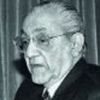Mr Sidhu, please uphold the dignity of your office

Can a minister of a government act in a movie or on TV? A bar on conducting business or trade, or on holding a directorship in a corporation comes readily to mind. But the fundamental question is: What is the rule that governs all such situations? Shortly after he was inducted as Cabinet minister in Punjab, Navjot Singh Sidhu declared he would continue to perform in a TV comedy show.
Chief minister Amarinder Singh rightly said, “We will have to ask our advocate-general to give us an opinion whether a person who is a minister can do what he (Sidhu) wants to do.” Mr Sidhu’s defence was astonishing for its brazenness and, indeed, for his profound ignorance of the norms governing a high public office. He said, “I earn a living through TV shows and I will be in Chandigarh from Monday to Thursday and in Amritsar from Friday to Sunday. What I do at night should not be anyone’s concern. I will take the first flight back to Punjab after TV shoots in Mumbai.”
His wife and former state legislator Navjot Kaur Sidhu said her family had no other source of income. “When I was working as an MLA, my electricity bill and tea for guests cost more.”
If the thousands who have served as ministers in India since Independence faced no such problem, it is either because they did not have a lavish lifestyle or were prepared to shed it on assumption of public office. The issue is not Mr Sidhu’s personal inconvenience. It is the dignity of public office.
According to a responsible correspondent, Punjab’s advocate general Atul Nanda advised Mr Sidhu “against continuing his programme”.
Attorney general Mukul Rohatgi, when asked about the Sidhu controversy, said there was no provision in the Constitution to disqualify an MLA or minister if he engaged in a private business. He should ask himself whether an advocate can accept such a role on TV while in practice. The records of the Bar Council of Maharashtra are full of rulings on this issue. It ruled, for instance, that an advocate cannot accept the job of a swimming coach while he is in practice.
Constitutions that adopted the British parliamentary system disqualified holders of “office of profit” from legislatures. Article 102 of the Indian Constitution bars them from Parliament and Article 191 from state legislatures. But these provisions pertain to one who “holds any office of profit under the government of India or of a state”. This does not give a legislator a carte blanche for private ventures at night.
There are rules of propriety that attach to public office as they do to an officer of the court — an advocate. On October 29, 1964 the Government of India published a code of conduct for Central and state ministers and appointed the Prime Minister and the Union home minister and chief minister, respectively, as “the authority for ensuring the observance of the code”. A recalcitrant minister gets the order of the boot: participating in any “business” is explicitly forbidden.
On February 25, 1952 Prime Minister Winston Churchil stated the rules governing ministers. They read thus: “It is a principle of public life that ministers must so order their affairs that no conflict arises, or appears to arise, between their private interests and their public duties. … Ministers should be free to give full attention to their official duties, and they should not engage in other activities which might be thought to distract their attention from those duties.”
There is an apt precedent. The chief minister of Andhra Pradesh, N.T. Rama Rao, decided to direct a film and act in it. A citizen challenged this in the high court, which dismissed the petition as no law was broken. The court expressed its disquiet, nonetheless. Attorney general K. Parasaran, appearing as amicus curiae, said, “In the interest of general public and to sustain the purity of public life, the holder of such office should not engage himself in any activity which leads directly to personal gain in material terms or which will undermine the dignity of the office.”
In May 1992, the British Cabinet Office published a code entitled Questions of Procedure for Ministers. It said: “Ministers may not practice regular political journalism” (Para 94). The idea of appearances on TV in order to “earn a living through TV shows” never crossed the mind of the code’s author. The object of the rules was to “secure the government bench from the danger of becoming a sty for guinea pigs”.

